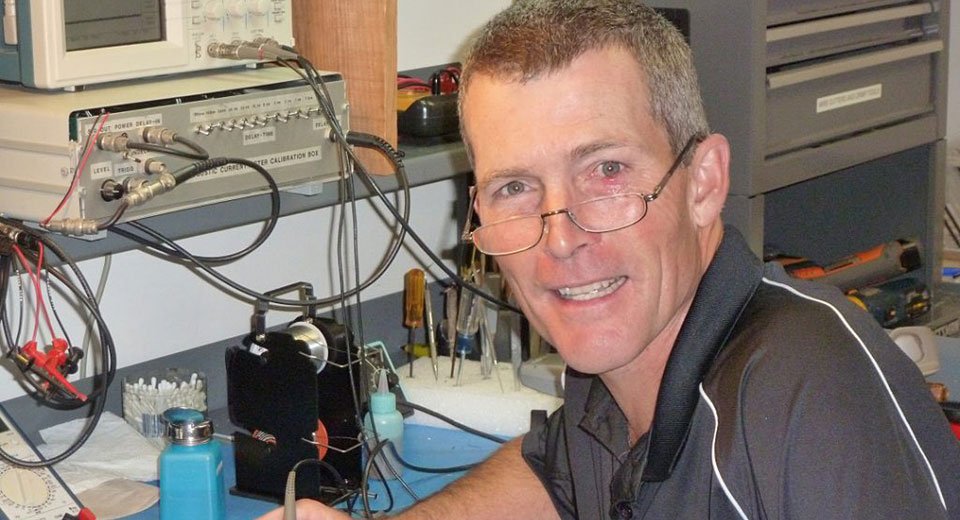A timely recovery from cancer for a would-be pirate
It’s never convenient when a serious health issue arises. But, for Paul Dugas of Falmouth, the timing couldn’t have been worse.
This past spring, he noticed a spot on his lower eyelid that wouldn’t go away, so he decided to get it checked. It turned out to be basal cell carcinoma and he was told it required surgery.
“The big deal about this whole thing for me was that the surgery was scheduled two weeks before my son’s wedding in Newport,” said Dugas, a self-employed electrical engineer who builds oceanographic equipment.
He was also anxious about going to Boston for what he was told would be “a rather extensive” surgical procedure and recovery, as well as possible plastic surgery, that would require wearing an eye patch for an extended period of time.
“I was going to go to the wedding dressed as a pirate,” he joked.
Then a friend at the Cape Cod Healthcare Foundation told him about a less invasive option called superficial radiation, which administers a shallow dose of radiation while protecting the structure beneath the skin. According to the American Cancer Society, radiation therapy is often a good option for treating patients with basal cell or squamous cell carcinoma on the eyelids, nose or ears.
Basia McAnaw, MD, a radiation oncologist at the Clark Cancer Center in Falmouth and the Davenport-Mugar Cancer Center in Hyannis, treats more than 100 patients each year with these types of skin cancers who are looking for an effective alternative to surgery. She told Dugas she had seen excellent results with her patients and offered to treat him before the wedding. After 10 treatments he was in good shape for his son’s wedding – without the eye patch.
“The techs and nurse Debbie in the Clark Cancer Center were great,” Dugas said, adding that he’s thankful to have been able to enjoy his summer, despite his diagnosis.
“I would say that the therapy I received improved my quality of life at a very important time,” he added. “It was a whole lot better than multiple surgeries. I was able to work and I didn’t have to leave the Cape.”
